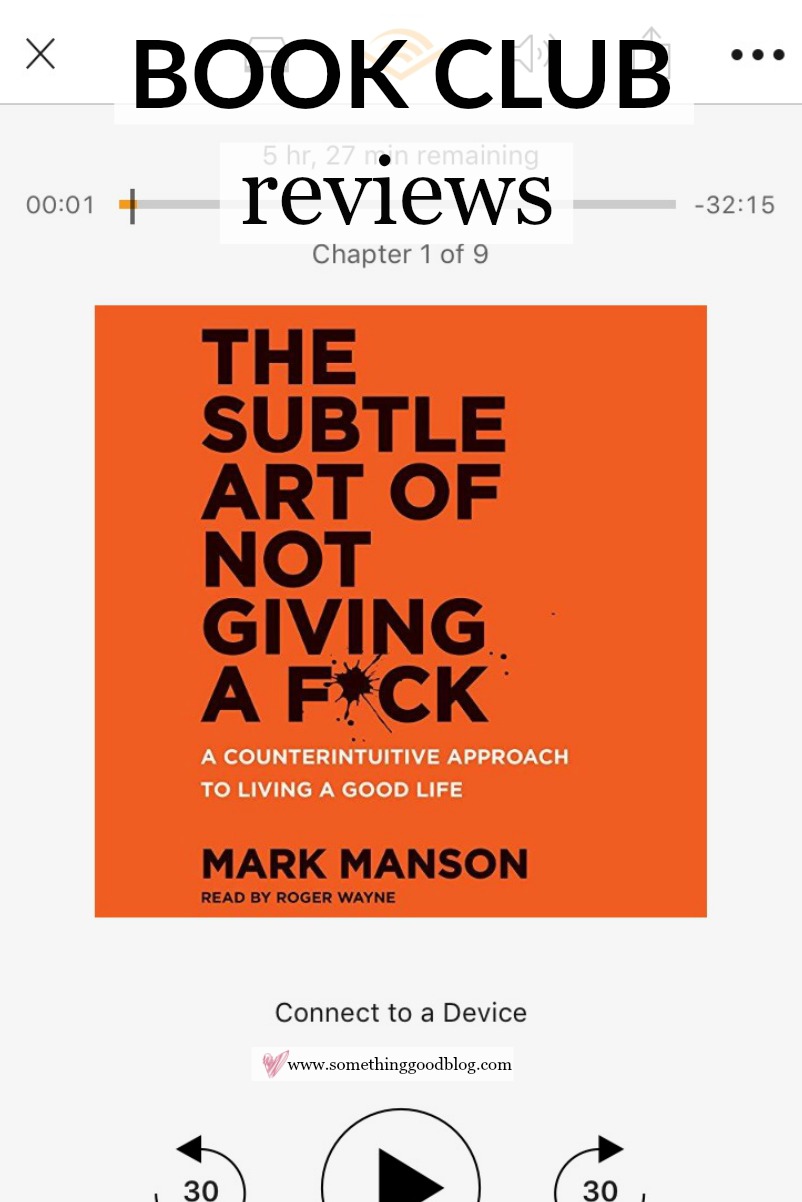Nobody likes saying that they’re buying a self help book. They’ll browse the aisles up and down, looking for that perfect book, but if you stop them and ask if they’re looking for a self help book, would they admit to it? Heck no.I mean, come on. Who actually wants to use the phrase “self-help”? No one.
But if you sub out the word help for improvement? People are all over it.
It’s funny. None of us want to admit that we need help, but we’re all for being open to improvement. Saying “yeah, I’m pretty awesome, but how can you make me better?”
Do I have a point here?
Yes and I’m getting to it. Because of the flip in words from help to improvement, I feel like I’ve seen the number of books in this genre skyrocket. And the number of people being open about reading them and sharing them with their friends has all of a sudden skyrocketed too. No longer are women hiding their copies of “He’s Just Not That Into You.” Instead, they’re flinging around their copies “You Are a Badass” and “This is Why You’re Single.”
So what’s changed? Is it that flip in words? Is the content better? Are we all in general just more confident? Or is it that we’ve all discovered Mark Manson’s book and no longer give a f*ck?
Yes, the first one is true. But I’m not really that sure about the second. I definitely don’t think it’s number three. So maybe it is number four.
If you haven’t seen or heard of The Subtle Art of Not Giving a F*ck by Mark Manson at this point, I have to admit that I’m pretty surprised. It’s kind of a hard book to miss. With the bright orange cover, the book may have been instagram famous before most people even finished reading it. But it’s what Manson talks about in the book that makes it an interested read that falls squarely into the self improvement genre.

The Subtle Art of Not Giving a F*ck by Mark Manson:
Summary
Within The Subtle Art of Not Giving a F*ck, Manson declares that the reader needs to lean into these five values before he is firmly at the point where he can no long give a fuck.
1. Taking responsibility for everything that occurs in your life
This point can be the heftiest to deal with and there, the first. As Manson explains, the most responsibility we accept into our lives, the more power we have. Why this idea can thrill you, it can also terrify you. After all, with more responsibility comes more power. Additionally, you become responsibile for your open problems.
However, may people also confuse being responsible for your power for also being at fault for any and all of their problems. Which is not only not fair to yourself, but it’s not true. Manson shares with the readers how fault refers to something in the past tense, such as a murder. The person who committed the murder is as fault. However, in the present, their is responsibility. It is now the responsibility of the judge to decide what to do with this you man. But remember, the judge is not at fault. He didn’t choose the bad situation, but now he is responsible for dealing with it. It’s important (in this case) that he (the judge) is not at fault.
2. Uncertainity
“Uncertainty is the root of all growth.”
That one hit me hard when I read it (actually, I heard it because audiobooks, but not the point). I didn’t really understand at first. How could being uncertain be the root for your growth?
Luckily, Manson went on.
“The openness to being wrong must be there for any change to take place. We have to look at our current values and strip them down and take away our biases.”
I love that and completely agree.
If we want to have any chance of improving, we need to open our minds. We can close ourselves off from the people we know and the strangers that we haven’t met yet. I’m not saying to up to a random stranger on the streeet and hug them. But, next time you’re having a conversation with someone and they express a different viewpoint, instead of immediately disagreeing and moving on, why not stop? Open up your mind and let them talk.
Listen to what they have to say. Maybe you’ll find that you actually agree with parts of what they’re saying. or they’ve helped you understand the other side of an argument. You can’t grow as a person if you shut yourself off from people. Take the time to learn and watch yourself grow.
This can also be hard, because it threatens our idea of our identity. In fact, Mason created a law to sum up this concept. “Manson’s Law of Identity” claims: the more something threatens your identity, the less likely you are to do it. This can law can apply to anything, good or bad. Listening to someone’s political views may open up your mind, but maybe it could threaten your long held stance. Becoming a millionaire will change your identity just as much as your boss firing you. Whether it’s good or bad, your identity changing can be scary.
3. Failure
As Manson defines it, failure is the willingness to discover your flaws and mistakes so they may be improved upon. Isn’t that a refreshing take on failure? Instead of taking an experience and focusing on your failure, use it to reexamine your flaws and mistakes. Find ways that you can improve and avoid it in the future.
Also remember, you never know what you’re doing and don’t be afraid of that. It means that no one else knows what they’re really doing. Never forget it either.
4. Rejection
Rejection is the ability to both say and hear no. It’s what you’re going to accept in life. Manson actually speaks about this in the beginning of the book. In life, you’re always going to give a f*ck, but the real choice is choosing what you give a f*ck to. Find a meaningful something to give a f*ck about, so you aren’t just giving your f*cks to everything. (Phew, that was a lot in one sentence).
Knowing when it’s okay to say no to something will allow you to spend more of your time on things that are more meaningful to you. It won’t cut out all of the bad, but it will allow you to focus on a lot of the good.
5. The contemplation of ones own mortality
Okay, this one seems a little dark at first, but Manson claims that paying attention to one’s own death is the only thing helping one keep all of our own values in proper prospective. What he really means is that you need to stop living in fear of death. Once you accept that it’s a natural part of life and stop seeking immortality, you can live your values freely.
My favorite last little bit from the book? Manson’s tips for getting work done and getting creativity flowing:
- Don’t just sit there, do something. The answers will follow.
- Action isn’t just the effect of motivation, it’s the cause of it.
- Inspiration leads to motivation which leads to action and it goes on an endless loop. But you’re better off rearranging it to action, motivation, and inspiration. Start with action and let your actions inspire you. Let that inspiration motivate you to more action and let the loop go from there.
You’ll Love The Subtle Art of Not Giving a F*ck by Mark Manson If…
You read and loved books like You Are a Badass or I Had a Good Time.
You want someone who will give it to you straight.
Bloggers like The Skinny Confidential or podcasters like The Morning Toast or The Bitch Bible are your favorite.
This Book Isn’t For You If…
If you hate swearing. If you didn’t get it from the title or the cover, he does that a lot. He’s also not one for the coddling. If Bene Brown is more of your self improvement guru jam (which there’s nothing wrong with), Mark Manson may not be for you.
Buy The Subtle Art of Not Giving a F*ck by Mark Manson or Listen To The Audiobook
I got my audiobook through Audible, but I also know it’s available at most libraries and local bookstores!





Comments
Comments are closed